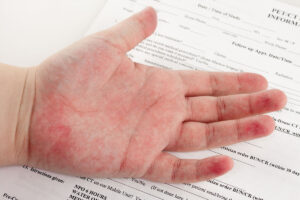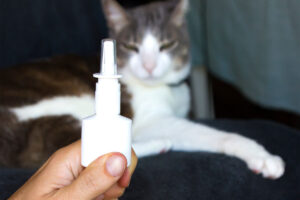Understanding the link between latex sensitivity and certain foods is important for people who are sensitive to latex to manage their health risks. People who are allergic to natural rubber latex have an immune response to allergenic proteins in the latex. This can cause a wide range of reactions, from skin irritation to serious reactions… [Read More]
Blog
Voice Disorders in Puberty: Exploring Puberphonia and its Treatment
As a person hits puberty, their body goes through many changes. One of the most obvious is changes in their voice. Changes in hormones that happen during puberty cause these vocal changes. For boys, the voice gets deeper, and for girls, it gets a little higher in pitch. But sometimes the expected changes in the… [Read More]
What You Should Know About Latex Allergy Tests
Latex allergy is a common health problem that can have mild to serious effects on people who are sensitive. Latex is a milky liquid that comes from plants or trees that are laticiferous. It is used in many medical and consumer goods because it forms a strong, flexible shield that water can’t get through. People… [Read More]
Latex Allergy Self-Care: Tips and Strategies for Daily Management
Latex allergy is a negative immune reaction to proteins in natural rubber latex from the Hevea brasiliensis tree. It affects many people, especially healthcare workers and those often exposed to latex products. Common symptoms range from mild skin irritations to potentially life-threatening allergic reactions like anaphylactic shock. To practice effective self-care, individuals with latex allergies… [Read More]
What Doesn’t Cause Tonsil Infections
Are you vigilant about your health but perplexed when it comes to what causes tonsil infections? Often, misinformation can lead us to misguided concerns. Let’s demystify the misconceptions and understand what doesn’t contribute to these uncomfortable infections. With Becker ENT’s commitment to medical accuracy and excellence, you’ll gain clarity and avoid unnecessary worry. Tonsil infections… [Read More]
Pet Allergy Sprays: A Comprehensive Review
Pet allergies are a common condition that impacts 10 to 20% of the global population. Typically, these allergies are triggered by proteins present in pets’ saliva, urine, or dander. Symptoms can vary from mild, such as sneezing and nasal congestion, to severe, encompassing skin rashes and difficulties breathing. One of the most effective ways to… [Read More]
Decoding Pet Allergy Tests: Understanding Pet Allergies
If you or a family member experience allergy symptoms such as a stuffy nose or itchy skin around your pets, understanding pet allergies is the first step towards relief. This article will highlight the process behind pet allergy tests, also known as allergy diagnostics, offering crucial information to pet owners. Whether it’s a mild annoyance… [Read More]
Understanding Lingual Tonsil Infections: Causes and Treatments
Lingual tonsil infection, also known as lingual tonsillitis, is a common condition that can affect both adults and children. These infections occur in the lingual tonsils, in the lymphoid tissue located near the back of the tongue. In some cases, the infection can also lead to more serious complications, such as obstructive sleep apnea or… [Read More]
Glaucoma and Allergic Conjunctivitis: Understanding the Link
Have you ever wondered about the intricate connection between glaucoma and allergic conjunctivitis? In this article, we dissect this complex relationship and give insights into these common eye conditions, highlighting ocular hypertension, a shared risk factor. Gain knowledge on how allergic eye conditions such as conjunctivitis can influence glaucoma and explore various methods of reducing… [Read More]
Choosing the Right Allergy Eye Drops for Allergic Conjunctivitis
Are your eyes itchy, red, and watering? If so, you might be suffering from allergic conjunctivitis. Because allergic conjunctivitis is closely tied to environmental allergens like pollen, dust mites, and pet dander, allergy specialists at Becker ENT and Allergy are well-positioned to help identify triggers and manage related eye symptoms. Choosing the right allergic conjunctivitis… [Read More]
- « Previous Page
- 1
- …
- 3
- 4
- 5
- 6
- 7
- …
- 16
- Next Page »











